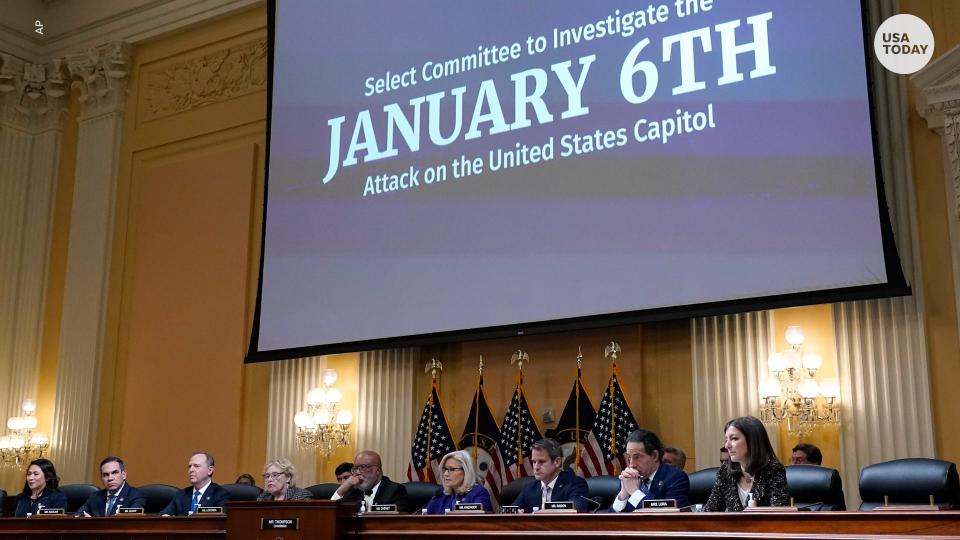Congress revises Electoral Count Act that Trump used to pressure Pence on Jan. 6
WASHINGTON – The 117th Congress in its final days revised the antiquated 1887 Electoral Count Act that caused chaos when the current slate of lawmakers were sworn in nearly two years ago.
Pushed through the must-pass spending bill, senators and representatives have made clear a vice president does not have the power to overturn a presidential election.
The change is likely the only recommendation of the House Jan. 6 committee that will pass Congress, especially when Republicans control the lower chamber next year and Democrats control the Senate, and it comes days before the House committee expires.
"Through the funding bill, we are ending the 117th Congress by protecting our democracy through reforming the Electoral Count Act," Senate Majority Leader Chuck Schumer said Thursday.
Sen. Chris Murphy, who helped write the changes, said they needed to pass "to make sure the next presidential election isn't stolen."

The Electoral Count Act was brought to the forefront by former President Donald Trump, who pressured his vice president, Mike Pence, to overturn the will of American voters on Jan. 6, 2021, by throwing out states' slates of electors. Pence refused, leading to calls for his hanging by hordes of Trump supporters and armed militias who breached the Capitol in a violent attack.
Trump said Tuesday on his social media platform Truth Social that the law should remain unchanged "in case of fraud."
Eighteen Republican senators disagreed with him when they voted with Democrats to approve the bill Thursday. Another nine Republicans voted for the legislation when it passed the House Friday afternoon.
House passes omnibus: Congress OKs $1.7 trillion spending plan with Ukraine aid, TikTok ban. Here's what we know.
What changes were made
The bill designates the vice president's role in the Electoral College count as ceremonial.
It raises the threshold to challenge presidential electors from the states to 20% of the House and Senate, rather than the current one lawmaker from each chamber.
States must now submit their official slates of electors on documents bearing their state seals and containing at least one security feature verifying their authenticity.
Legal challenges to state electors in federal court will be expedited and heard by a district court panel of three judges: two appellate judges and one district judge.
Appeals will head straight to the Supreme Court.
Jan. 6 attack inspired changes
The Jan. 6 committee recommended changes "to deter other future attempts to overturn Presidential Elections," the report said.
A deeper look: Electoral Count Act at heart of Trump's effort to overturn election part of spending bill
Final report: Jan. 6 report says Trump floated plan for 10,000 troops to protect him - live updates
"As our Report describes, Donald J. Trump, John Eastman, and others corruptly attempted to violate the Electoral Count Act of 1887 in an effort to overturn the 2020 Presidential Election," the committee said in its final report, referring to one of Trump's attorneys who spearheaded part of the effort.
It also made criminal referrals and called on Congress to reform criminal statutes and use the 14th Amendment to prevent Trump from holding public office again. The amendment prevents someone who took an oath to uphold the Constitution and engages in an insurrection from serving in state and federal governments.
Those other recommendations are unlikely to pass in the 118th Congress next year, when Republicans will have majority control in the House and Democrats will have majority control in the Senate.
Electoral Count Act reform – and the spending bill – now head to President Joe Biden, who will sign the measure into law.
This article originally appeared on USA TODAY: Jan. 6 recommendation to revise Electoral Count Act clears Congress
